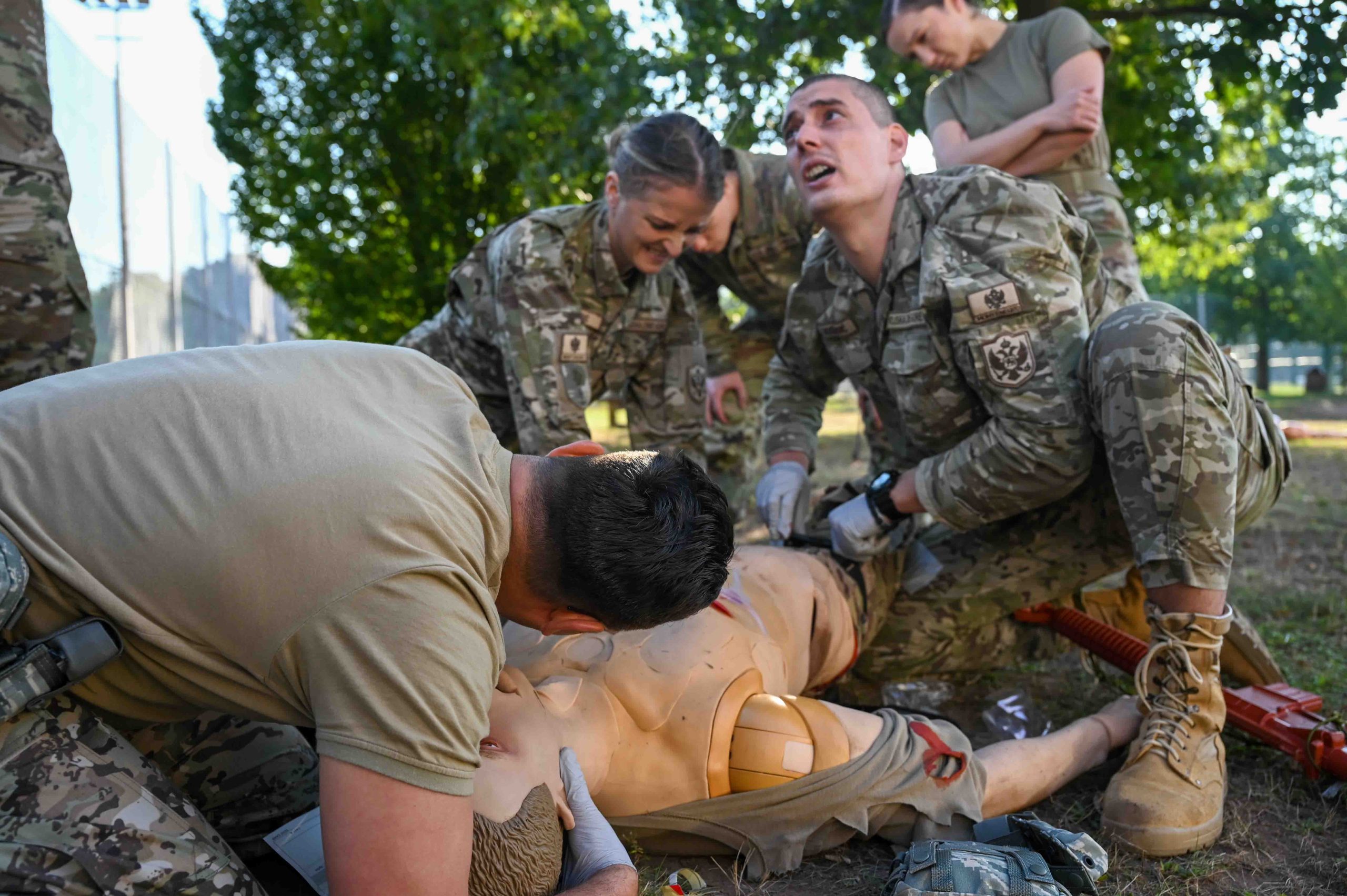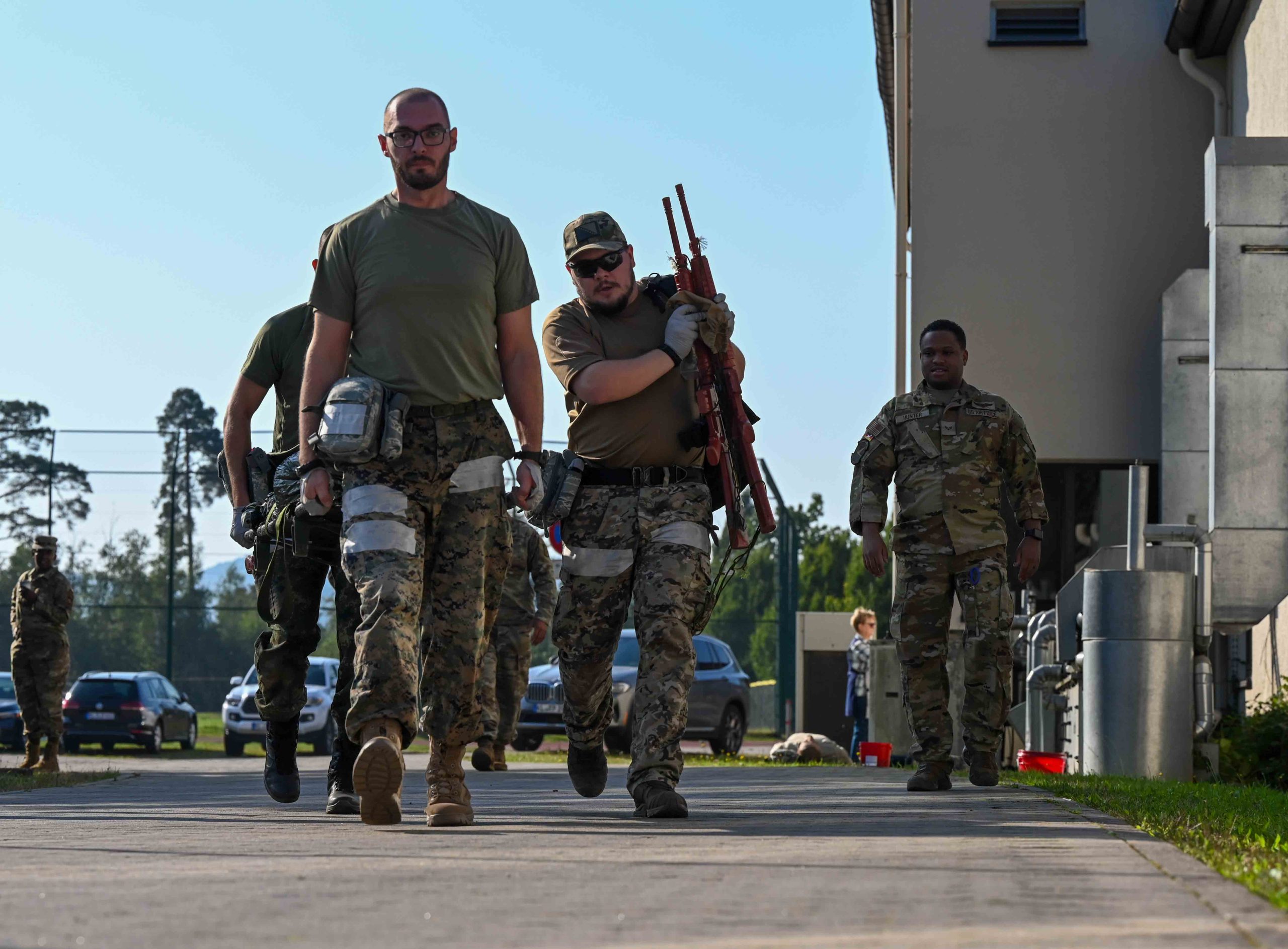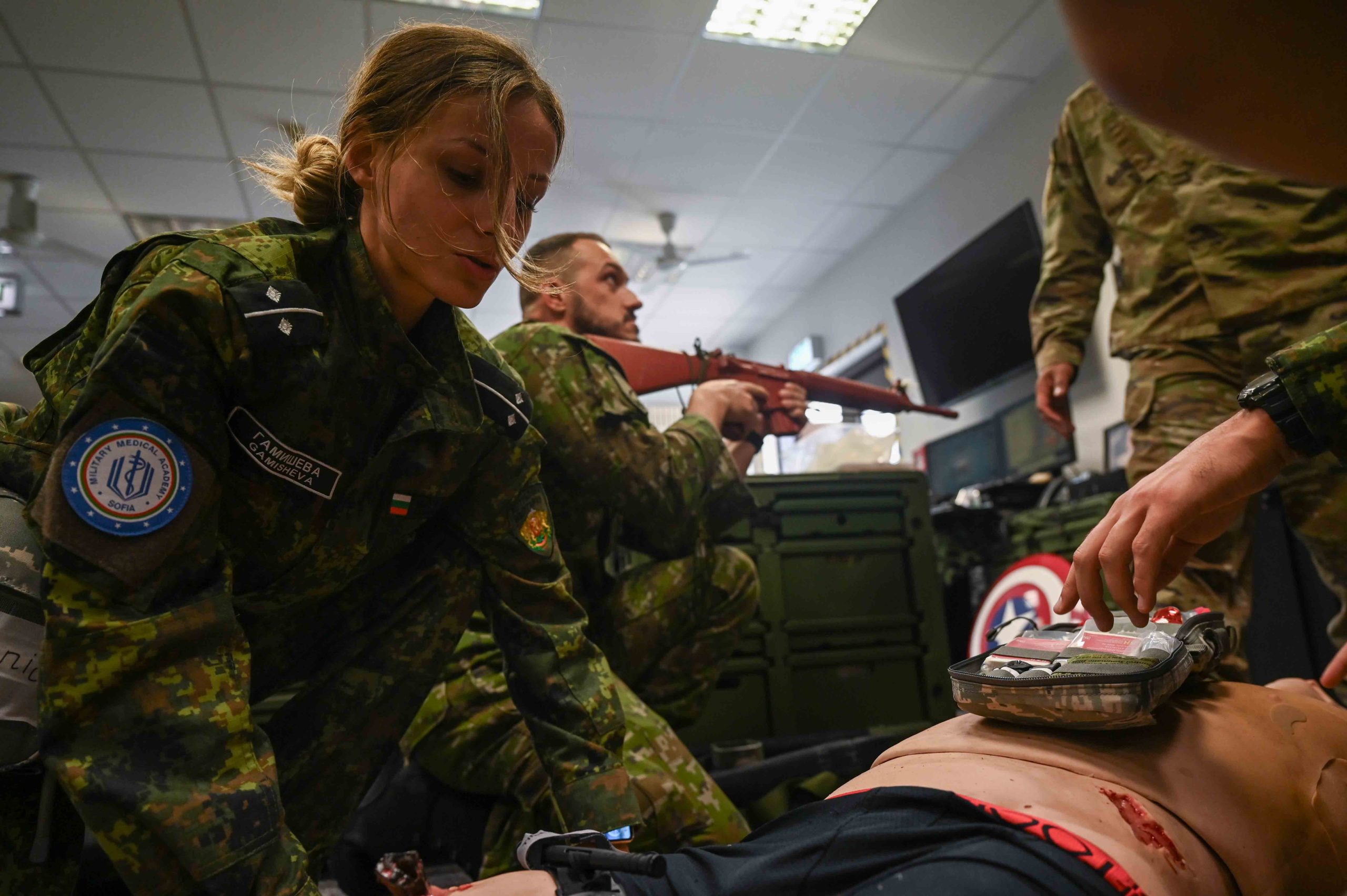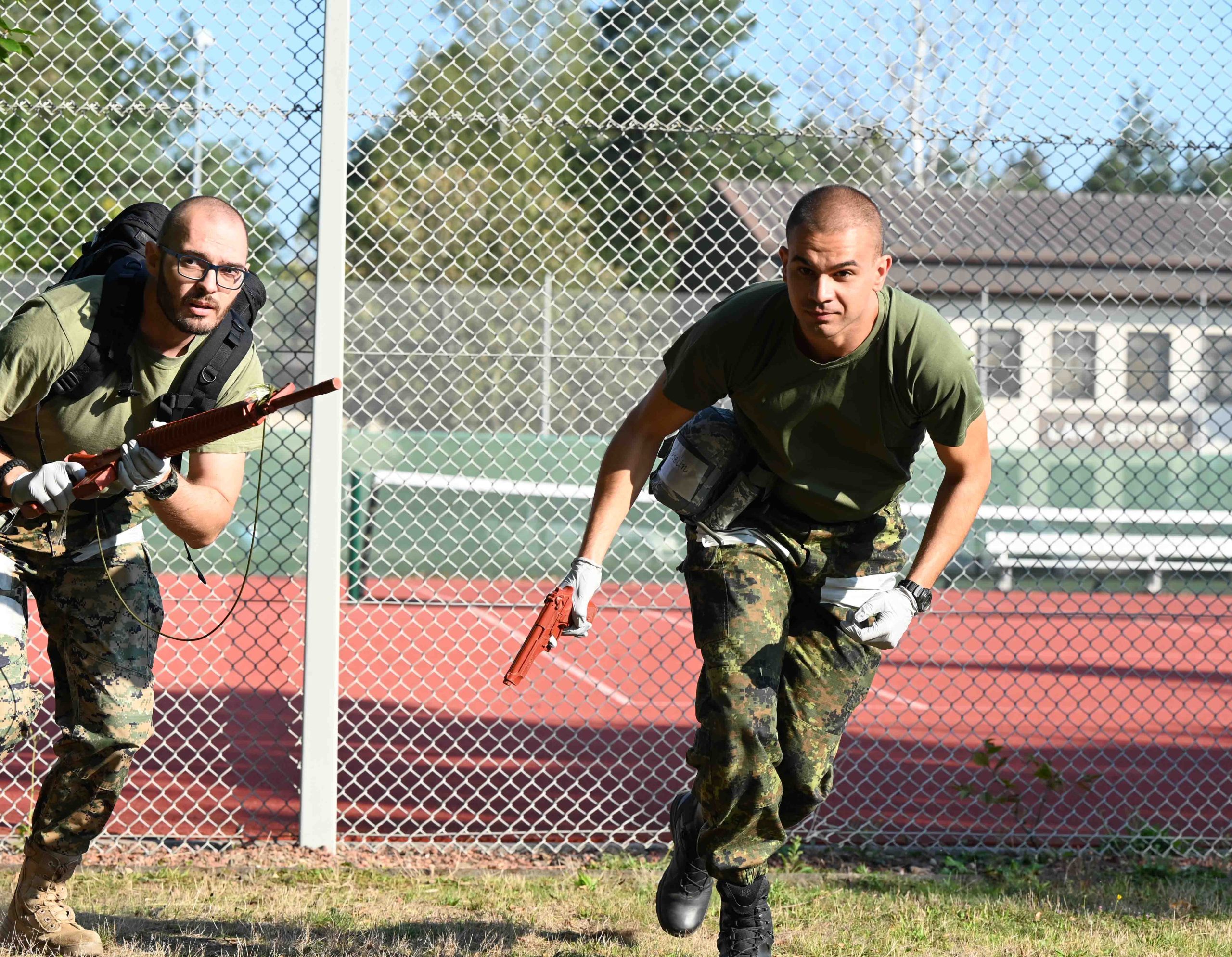In the current global security landscape, the ability of nations to collaborate effectively during crises is paramount. The recent European Role 1 Development Week, hosted by the United States Air Forces in Europe – Air Forces Africa (USAFE-AFAFRICA) at Ramstein Air Base from September 16 to 20, 2024, underscores the significance of multilateral training in enhancing medical preparedness among NATO allies and partner nations. This initiative not only highlights the differences in national practices but also fosters a spirit of cooperation that is essential for collective security and operational effectiveness in crises.
The European Role 1 Development Week serves as a critical platform for medical personnel from various nations to engage in hands-on training, share knowledge, and familiarize themselves with diverse medical equipment and practices. This article explores the significance of the training week, the implications for allied collaboration, and its impact on future military and humanitarian operations in Europe.

The Context of the European Role 1 Development Week
NATO and Multinational Medical Cooperation
NATO’s commitment to collective defense extends beyond traditional military capabilities to encompass a range of support functions, including medical readiness. The alliance recognizes that effective medical response is vital to mission success, especially in complex operational environments. The European Role 1 Development Week is a manifestation of NATO’s dedication to enhancing medical interoperability among its member states and partners.
As military operations become increasingly joint and coalition-based, the importance of standardized medical practices cannot be overstated. The European Role 1 Development Week is designed to address this need by bringing together medical professionals from NATO and allied nations to develop a shared understanding of medical protocols, equipment, and best practices.
Objectives of the Training Week
The European Role 1 Development Week aimed to achieve several key objectives:
- Fostering Multilateral Training Skills: The training provided an opportunity for medical personnel from various nations to engage in practical exercises that simulated real-world scenarios. This hands-on experience is vital for improving readiness and ensuring that personnel are prepared for any eventuality.
- Sharing Medical Knowledge: By bringing together diverse perspectives and practices, the training facilitated an exchange of knowledge that is crucial for enhancing the capabilities of all participating nations. This collaborative approach allows for the identification of best practices that can be adopted across different military contexts.
- Familiarizing with Equipment: The training week included sessions on the use of various medical equipment, including interactive mannequins designed to simulate battlefield conditions. This exposure is particularly important for nations that may not have access to the same resources, as it enables them to learn from more experienced allies.
- Building Relationships: The European Role 1 Development Week serves as a platform for strengthening relationships between NATO allies and partners. By fostering camaraderie and collaboration, the training helps to create a robust network of medical professionals who can rely on each other in times of crisis.

The Training Experience at Ramstein Air Base
A Hub of Allied Collaboration
Ramstein Air Base, located in Germany, serves as a critical hub for NATO operations and allied cooperation. Its strategic location and facilities make it an ideal venue for multinational training events such as the European Role 1 Development Week. U.S. Air Force Maj. Lyubomir Angelov, an international health specialist with USAFE-AFAFRICA, emphasized the significance of Ramstein as a meeting point for forces to come together, share knowledge, and become familiar with the same types of medical equipment.
During the training week, participants engaged in a series of practical exercises that focused on improving medical skills and fostering knowledge sharing. These exercises were designed to simulate real-world battlefield scenarios, allowing participants to apply their training in a controlled environment. By exposing medical personnel to diverse situations, the training aimed to enhance their adaptability and readiness for future operations.
The Role of Interactive Equipment
A key component of the training was the use of innovative medical equipment, including interactive mannequins. These advanced training tools simulate a range of medical conditions, allowing participants to practice their skills in diagnosing and treating injuries that might occur in combat or humanitarian situations.
The use of such equipment not only enhances the realism of the training but also provides valuable opportunities for participants to learn from one another. Understanding how different nations utilize medical technology can lead to the development of shared practices that improve overall medical readiness.
Practical Exercises and Knowledge Sharing
Throughout the training week, participants engaged in practical exercises that emphasized collaboration and communication. By working together in simulated scenarios, medical personnel from different nations were able to identify areas for improvement and share insights on best practices.
The training also provided an opportunity for participants to learn about new medical techniques and procedures that could be implemented in their own countries. Slovakian service member Staff Sgt. Tibor Jenco remarked on the value of the experience, stating, “I saw some new equipment throughout the course and learned a lot of new practices that I will share with my medical colleagues.”
This emphasis on knowledge sharing is crucial for enhancing the capabilities of all participating nations, creating a powerful foundation of shared knowledge, skills, and abilities that can be leveraged during future missions.

Implications for Allied Collaboration
Strengthening NATO’s Collective Defense Capabilities
The European Role 1 Development Week contributes significantly to NATO’s collective defense capabilities by enhancing the medical readiness of allied forces. As military operations increasingly require joint efforts, the ability to provide effective medical support is essential for mission success.
The training not only equips medical personnel with the necessary skills but also fosters a sense of unity and cooperation among allied nations. By working together in a training environment, participants develop trust and understanding that can be crucial during actual operations.
Enhancing Humanitarian Response
The skills developed during the European Role 1 Development Week are not limited to military operations; they also extend to humanitarian response efforts. The ability to provide effective medical care in disaster-stricken areas or during humanitarian crises is a critical component of modern military operations.
As NATO allies and partners enhance their medical capabilities, they are better positioned to respond to natural disasters and other crises. The collaborative training approach ensures that medical personnel from different nations can work together seamlessly, providing timely and effective care to those in need.
Building Resilience in the Face of Future Challenges
The European Role 1 Development Week serves as a proactive measure in building resilience among NATO allies and partners. As the global security landscape continues to evolve, the need for adaptable and capable forces becomes increasingly important.
By investing in training and fostering cooperation, NATO is better equipped to address emerging challenges and respond to unforeseen threats. The skills developed during the training week will be invaluable in preparing personnel for the complexities of modern warfare and humanitarian response.

The Broader Impact on Global Security
Enhancing Regional Stability
The collaborative efforts of NATO allies and partners to improve medical readiness contribute to broader regional stability. By working together to develop shared practices and capabilities, these nations can present a unified front in the face of potential threats.
This emphasis on cooperation also sends a strong message to potential adversaries regarding the strength of NATO’s collective defense posture. A well-prepared and united alliance is a deterrent to those who might seek to exploit vulnerabilities.
Fostering Global Partnerships
The European Role 1 Development Week also serves as a model for fostering global partnerships beyond NATO. As nations collaborate to enhance their medical capabilities, they can develop relationships that extend beyond military training.
These partnerships can lead to joint exercises, knowledge sharing, and collaborative efforts in addressing global security challenges. By building networks of cooperation, nations can better respond to crises and promote stability in their respective regions.

Addressing Emerging Security Threats
As the nature of security threats continues to evolve, the need for adaptable and capable military forces becomes increasingly important. The European Role 1 Development Week addresses this need by equipping medical personnel with the skills necessary to respond to a variety of scenarios, including conventional warfare, hybrid threats, and humanitarian crises.
By fostering a culture of collaboration and knowledge sharing, NATO allies and partners are better positioned to address emerging security challenges. This proactive approach enhances overall readiness and resilience, ensuring that nations can respond effectively to any situation that may arise.
The European Role 1 Development Week at Ramstein Air Base represents a significant advancement in the medical readiness of NATO allies and partner nations. By fostering multilateral training skills, sharing knowledge, and familiarizing participants with advanced medical equipment, the training enhances the capabilities of all involved.
As the global security landscape continues to evolve, the importance of collaboration and cooperation among nations cannot be overstated. The skills and relationships developed during this training week will play a critical role in enhancing operational readiness, addressing emerging challenges, and promoting regional stability.
In a world where the nature of conflict is constantly changing, the ability of nations to work together effectively is paramount. The European Role 1 Development Week serves as a powerful reminder of the strength of allied collaboration and its impact on global security. As NATO continues to evolve and adapt to new challenges, the commitment to enhancing medical readiness through training initiatives like this will be vital for ensuring the safety and security of all nations involved.



